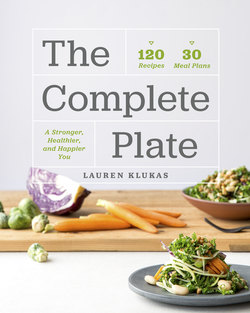Читать книгу The Complete Plate - Lauren Klukas - Страница 17
На сайте Литреса книга снята с продажи.
Оглавление17
I believe that everyone should have access to reliable nutrition information to help them make decisions about their health. What we eat impacts us throughout our lives, from our mother’s diet during our fetal development to our golden years. My interest in nutrition started when I met my husband, back when we were still kids. He was diag-nosed with type 1 diabetes mellitus at the age of 12, and I was fascinated with how food had such an immediate impact on his health. This sparked my journey to become a dietitian so I could help equip people to meet their health and nutrition goals.
Making a change is not a simple process because not only do we eat for physical nourishment, but also for social, psychological, and cultural reasons. Time, busy schedules, and finances impact our food choices, as well as the myriad of dietary preferences and requests of the people we are cooking for. Then, there is the flurry of information about nutrition from television, the Internet, and social circles (social media anyone?) that we try to sort through to make the best choices we can. What a process! Everyone should have access to trustworthy nutrition information; however, one of the challenges in the Information Age is being able to navigate, interpret, and trust the overwhelming amount of information at our fingertips.
Our body is a complex system of organs (large scale) made up of many types of individualized cells (small scale).
The foods that we eat provide the essential building blocks for these cells and organs to function, of which our understanding continues to evolve. The body relies on macronutrients—carbohydrates, protein, and fat—along with micronutrients—vitamins and minerals—to carry out life-giving func-tions. The Complete Plate is in no way a comprehensive lesson on nutrition, but I hope to clarify some of the founda-tions of nutrition as you embark on your healthy lifestyle adventure.
Macronutrients
Carbohydrates, protein, and fat act as the main building blocks in our body and are the components of food that contri-bute calories. Now here is a significant question: how much do calories count? When looking at weight management, the number of calories you consume makes a difference, as this is the amount of energy we are feeding our body, and that energy either needs to be used or stored. However, it is more important to put the emphasis on choosing foods that are “nutrient dense” versus “calorie dense.” This means your calories should come from foods that provide many nutrients important to our health (nutrient dense), rather than foods that have few nutrients but are high in energy (calorie dense). The body needs energy to function, but as with other concepts in nutrition, moderation is key—we want to give our body the energy it needs, not a lot of extra energy to store.
